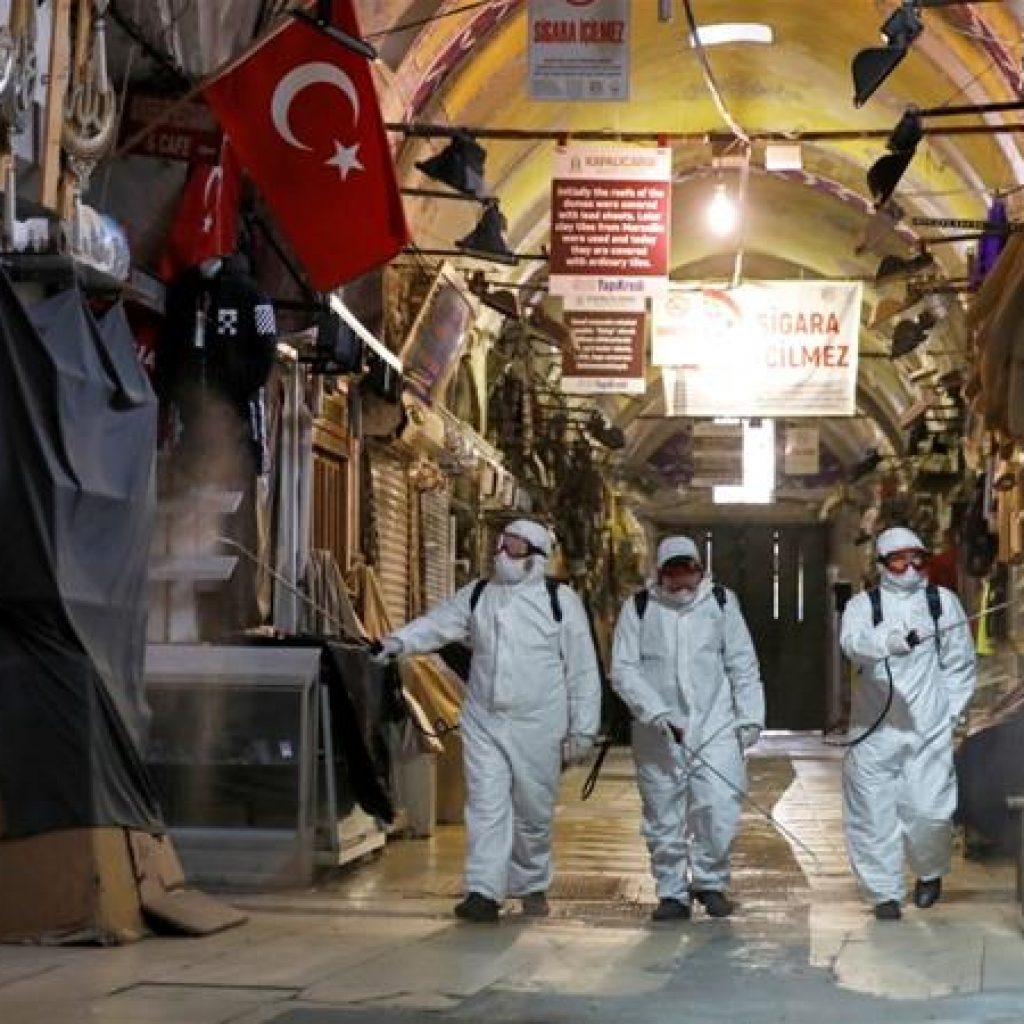How Turkey is Faring in the Battle against Coronavirus
[Editor’s note: we’re pleased to feature this contribution from Turkish journalist Merve Şebnem Oruç, who will be posting occasional reports commentary to robertamsterdam.com in the coming weeks.]

Global demand for medical equipment such as surgical masks, N-95 masks, face shields, overalls, disinfectants, which are desperately needed to fight the novel coronavirus is growing. But in Turkey, masks are distributed free of charge to everyone, there is no lack of medical equipment needed by the health staff who fights in the frontlines against COVID-19 and disinfectant supply is more than enough. Although Turkey ranks 8th worldwide with coronavirus cases leaving Iran behind, the country’s death rate is less than half of her neighbor’s. Turkey also ranks 7th in the world with coronavirus tests.
Moreover, Turkey is sending medical aid to other countries which are severely affected due to the epidemic. These countries include its NATO allies, the U.S., Italy, Spain, Britain, as well as the others such as Balkan countries, Libya, Palestine, Africa, South America and et cetera. The number of the states that have received medical equipment aid from Turkey is currently 55.
How does all this happen?
The cooperation between the public institutions and private companies lies behind this mystery.
Right after the spread of infection in Iran after China, Turkey predicted that there will be a sudden increase in demand for masks and medical equipment and started to work on how to enhance the production of the necessary materials. While government-owned research institutions and technology companies have developed respirators, private companies also started production voluntarily.
Ranking 10th among the top 50 arms manufacturing countries with her ability to supply 70 percent the country’s military demand such as armored vehicles, high-performance UAVs, attack helicopters as well as weapons, Turkey’s defense industry has played critical role in the mobilization against the pandemic.
A small-scale company, BIOSYS Medical, managed to develop a domestic intensive-care respirator in March after a five-year research period. The big drone manufacturer BAYKAR was quick to order 250 of these products. Shortly thereafter, BAYKAR launched a serial production plan in cooperation with BIOSYS company. In the meantime, ASELSAN, which is the largest defense technology company in Turkey, established a team of 120 technicians from the leading household appliance manufacturer Arcelik and BIOSYS. As a result of this cooperation, ASELSAN aims to produce five thousand respirators by the end of May. In addition to that, a research institute founded by the Ministry of Health manufactured respirators in mid-April. Its goal is to produce 500 units per week after it starts mass production as of May.
A sewing factory, which sews military uniforms for the Ministry of Defense, also started to manufacture masks rapidly at the end of March. According to Defense Minister Hulusi Akar, 10 million masks are produced every week in Turkey. Also, Turkey is one of the world’s well-known textile manufacturing countries and it is famous with its high-quality products. The country’s leading textile companies volunteered for mask and protective clothing production. The productions are delivered to the Ministry of Health free of charge. For surgical masks that is made from a fabric other than general-purpose masks, 600 tons of fabric is needed per month, and the manufacturing factories in Turkey works non-stop day and night.
Turkish public institution’s cooperation on the fight against COVID-19 is not just with companies. Technical high schools have become an important center for the production of masks and protective clothing. In March, Turkish Ministry of Education, which is responsible for compulsory education in the country, provided a special budget determining 30 schools in 14 provinces of Turkey. Accordingly, high school students have participated in the production of medical equipment under the guidance of specialists. The Ministry of Education announced that six million liters of disinfectant, 10 million masks, 10 million surgical masks, one million protective clothing and 750 thousand face shields were produced last month. In addition to that, several high schools are successful at producing respirators.
All the equipment in question used in hospitals and health-care centers in the region where the school is located after the Ministry of Health confirms that the products meet with its standards.
On the other hand, the sale of masks at high prices was considered as a problem, and its sale was banned as of April. An electronic distribution system was created by the government. It can be said that it was achieved thanks to mass production of masks after the cooperation decision of the public-private sector. Free mask machines were also installed in public transportation buses and metro stations where wearing mask is mandatory. By a Presidential decree in mid-April, all national hospitals started to serve coronavirus patients free of charge. The rule includes intensive care units of the hospitals.
As of May 3, 126,045 people have been infected with the novel coronavirus and 3,397 lost their lives. In the last 15 days, the number of deaths started to decrease gradually. The number of people recovered has steadily increased and more than 40 thousand people recovered in April. About 40,000 people are tested every day, and more than one million people have been tested so far in the country, of which population is 82 million. The government announced that if it continues to go this way, the restrictions could be lifted in late May. Let us hope that all the world leaves the pandemic behind soon.
Merve Şebnem Oruç is an award winning editor and columnist for Daily Sabah and HABER. She is on Twitter here.











